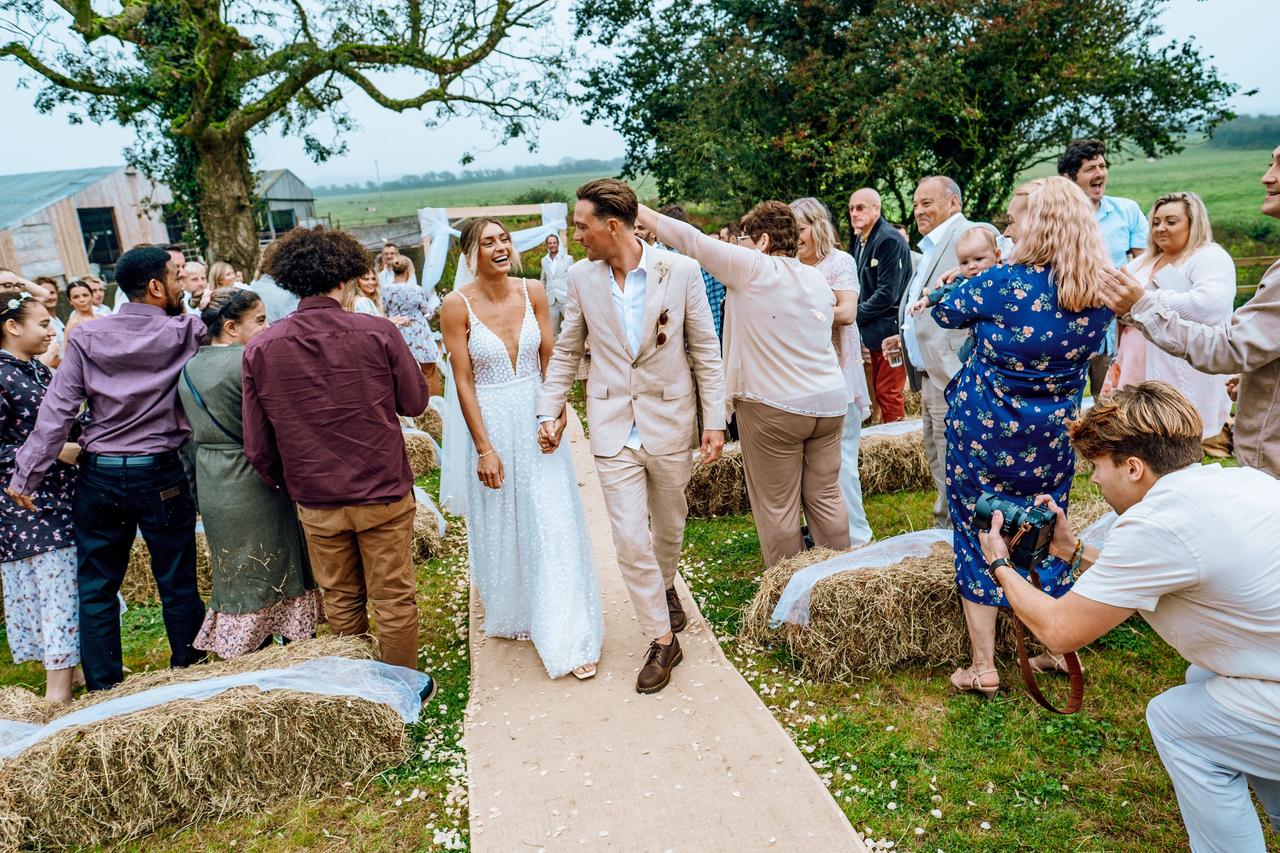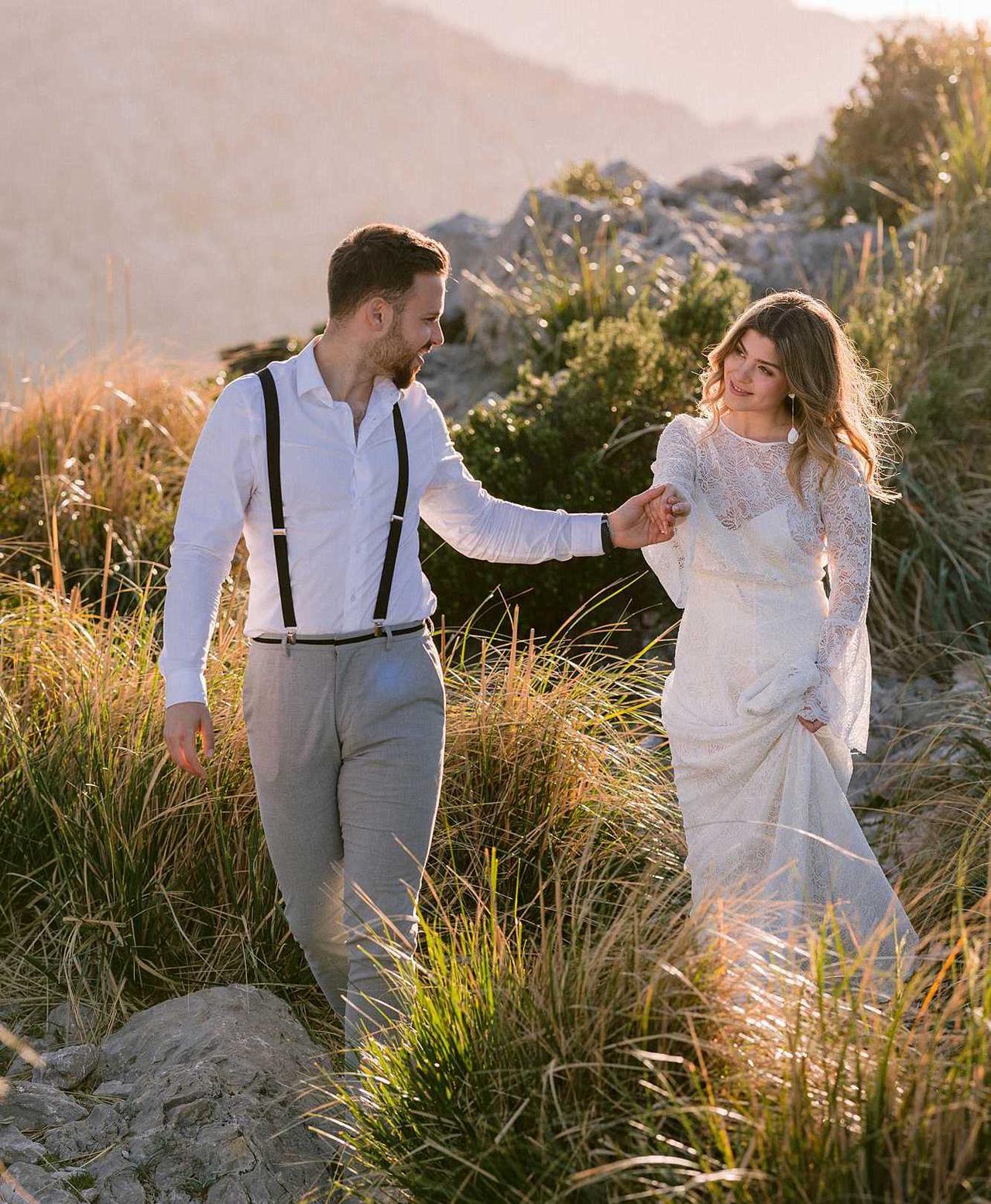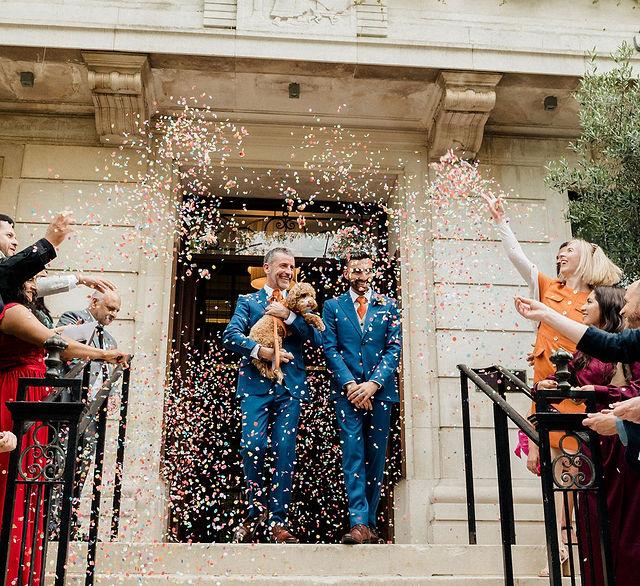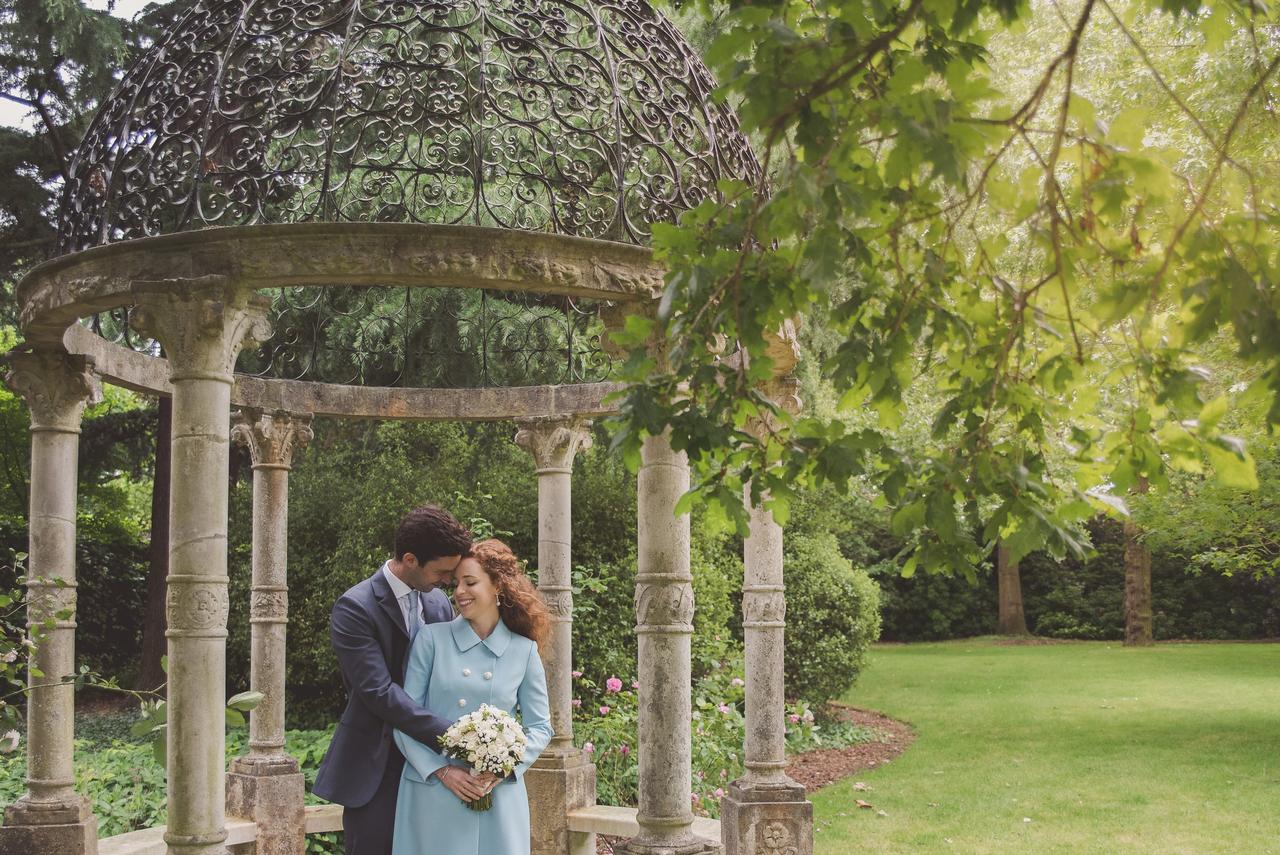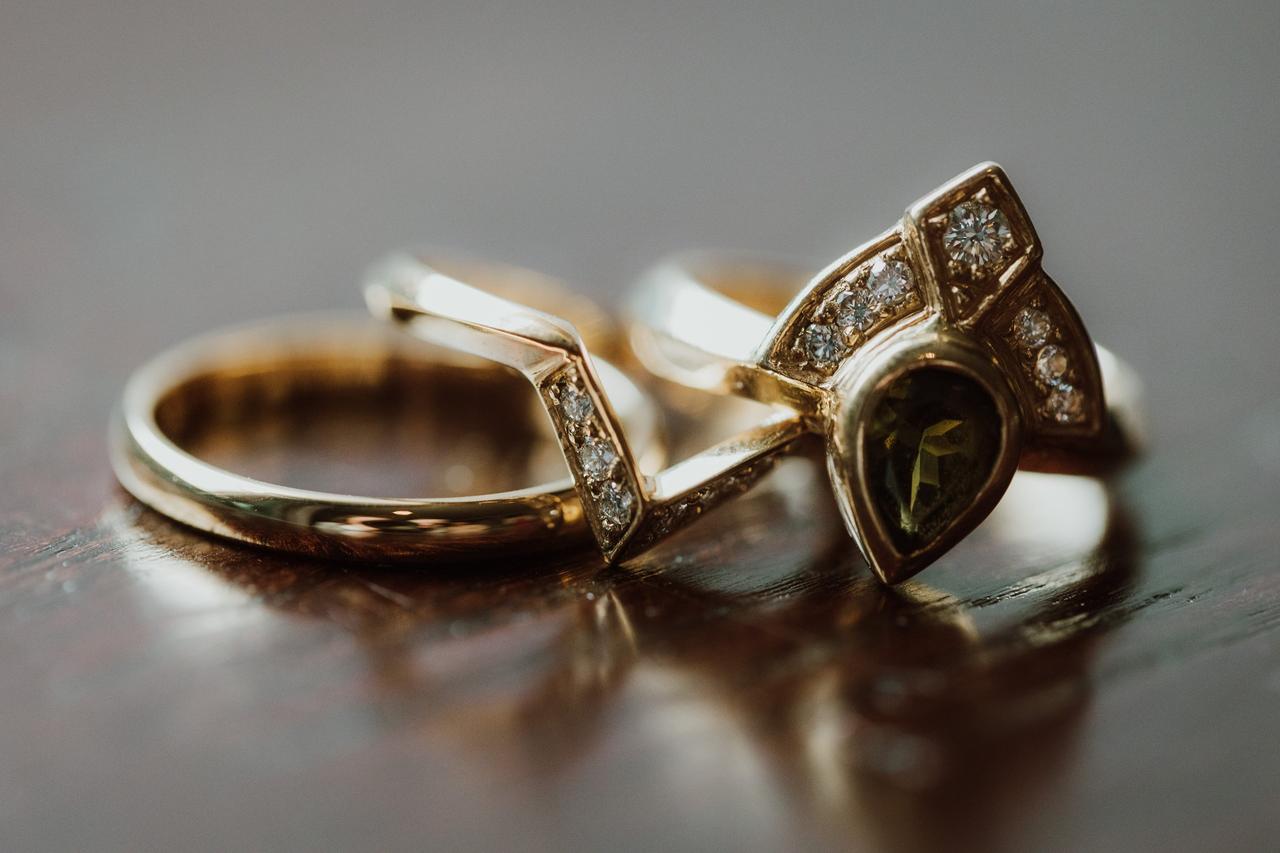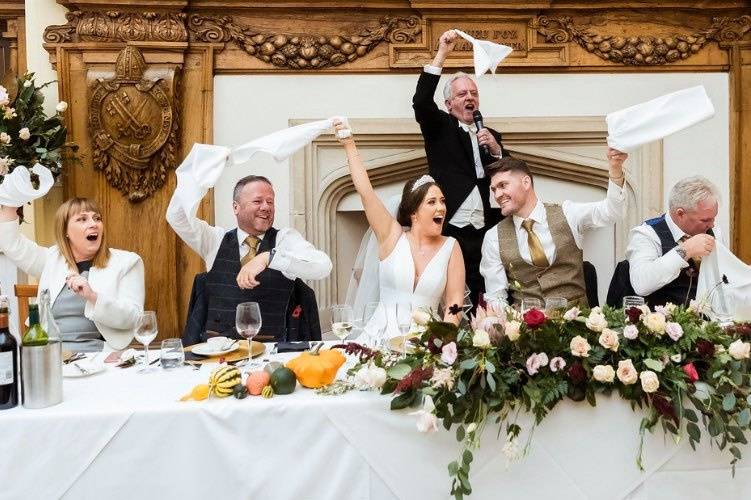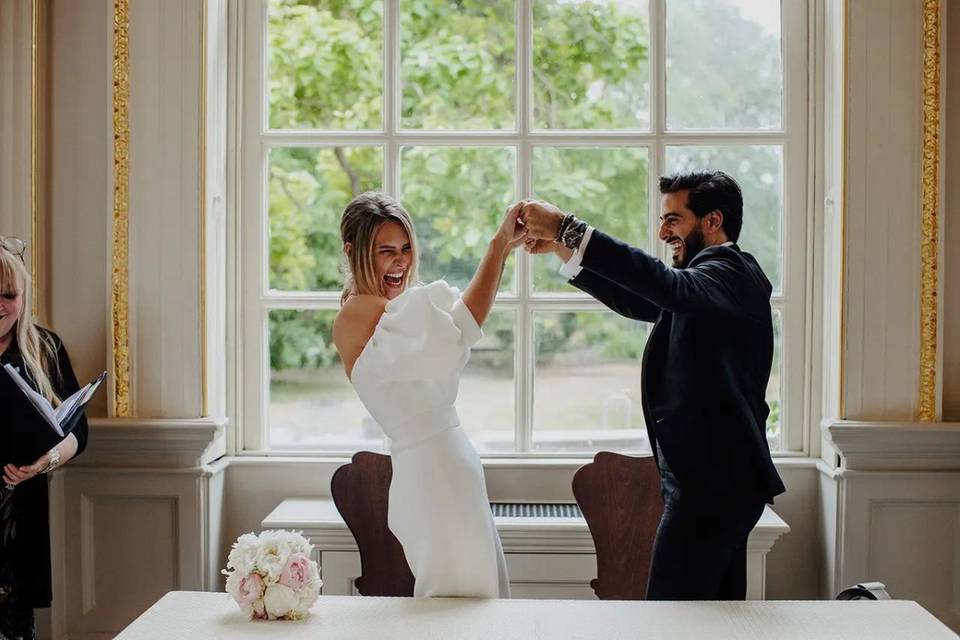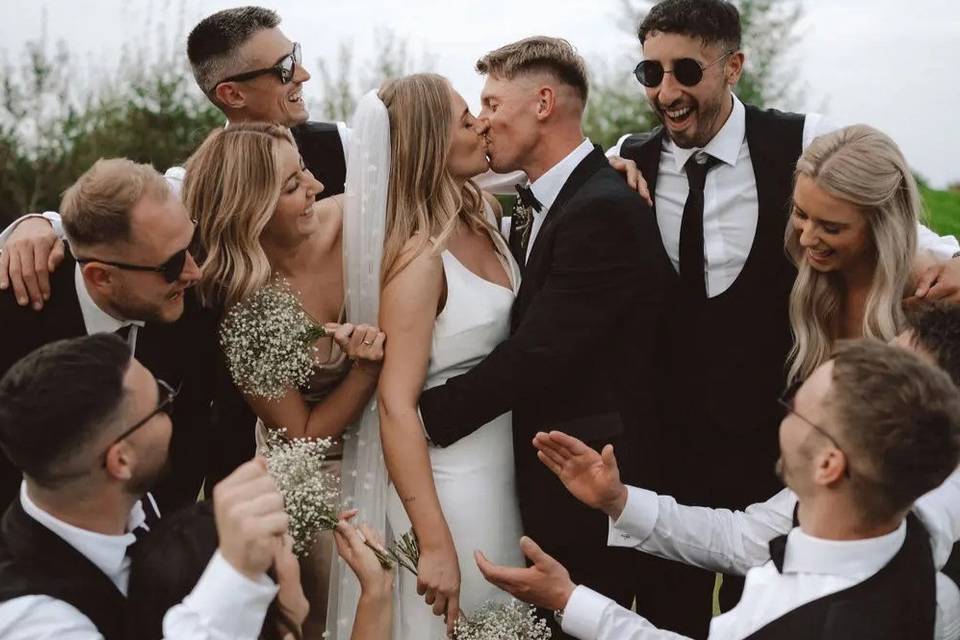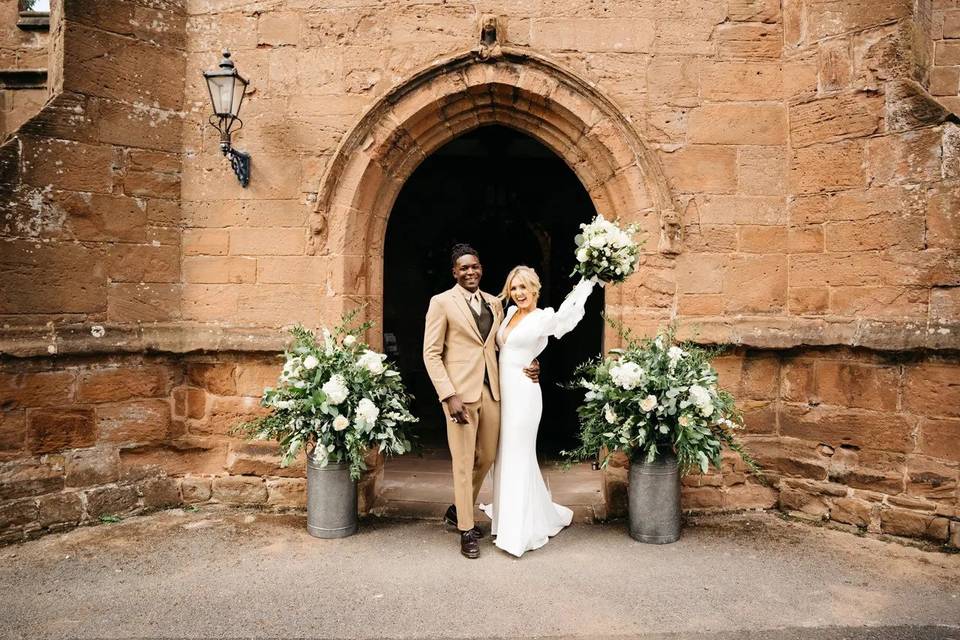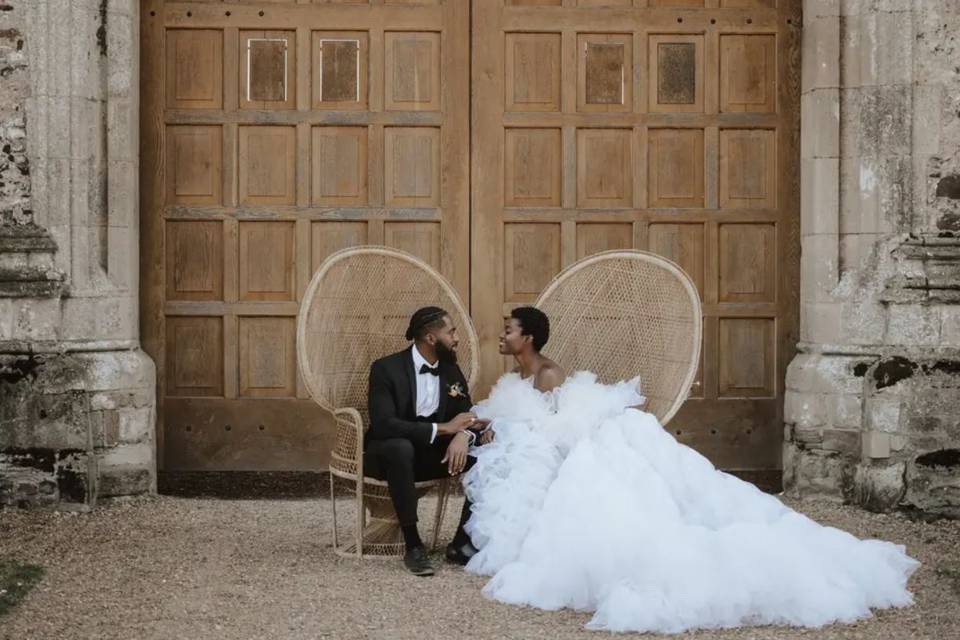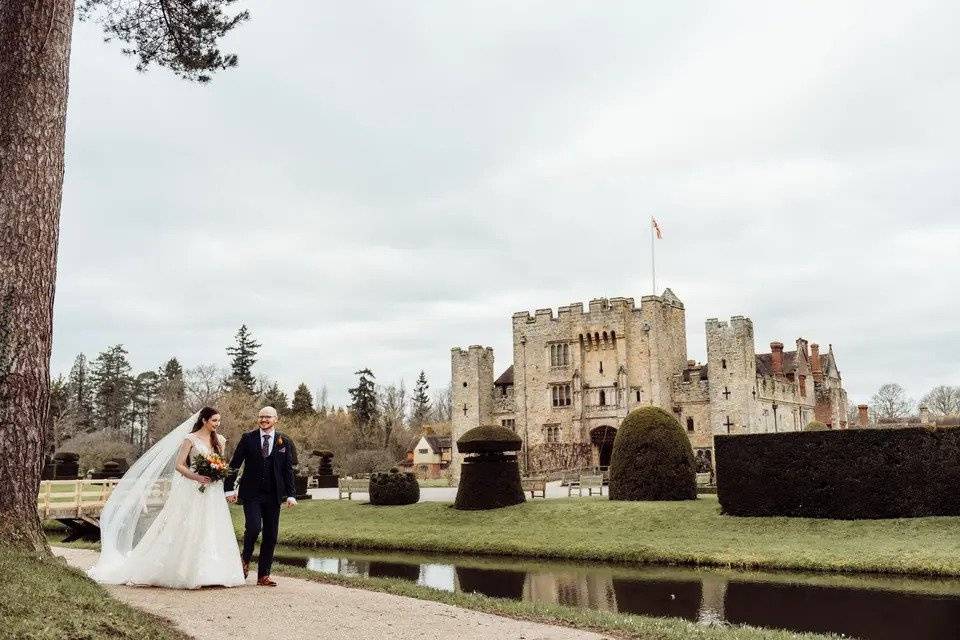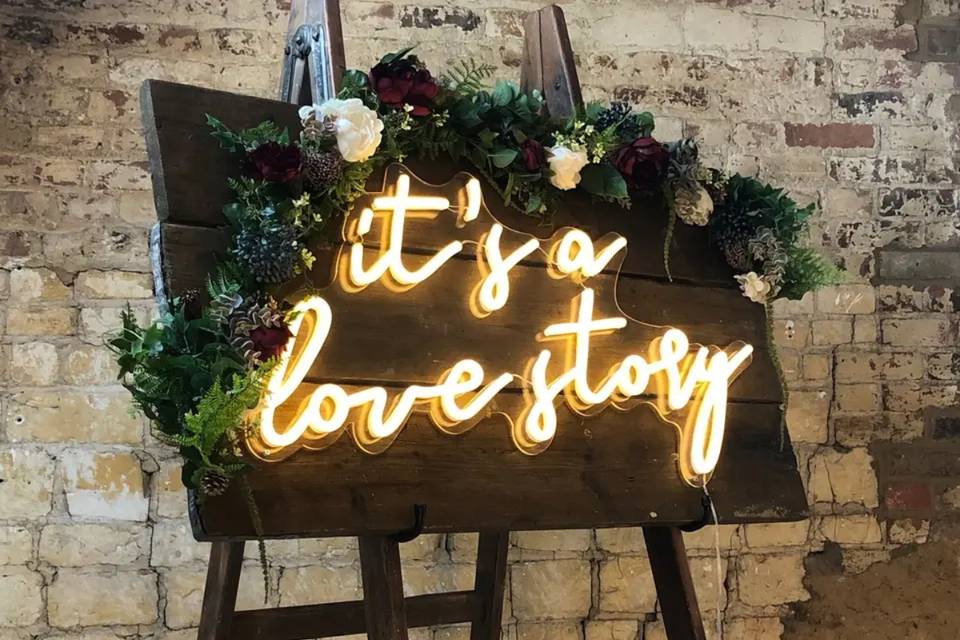What is a Commitment Ceremony & Is It Right For You?
How does a commitment ceremony compare to a civil or religious wedding? Here’s everything you need to know before you say ‘I do’
How you choose to express your commitment to your partner is a hugely personal choice, and for some couples, a legal wedding might not be right - so you might consider a commitment ceremony.
If you’ve been wondering how you can get married without a legal wedding in the UK, you do have options if you want to celebrate your union outside of the traditional framework of a civil or religious ceremony.
A commitment ceremony could be for you if you’d like to express your devotion to your partner without the paperwork. To help you decide, here’s everything you need to know about how a commitment ceremony works and the ways in which it differs from a religious wedding or civil ceremony.
What is a Commitment Ceremony?
A commitment ceremony is a service that allows a couple to make a commitment to one another and celebrate their relationship without legal rights or responsibilities.
You can still say vows, ask guests to do readings, play music, express your love for one another, exchange rings (more on that later) and kiss in front of your nearest and dearest, but the service isn’t legally binding, and your marital status will not change.
“A commitment ceremony can be designed to reflect the couple’s values and beliefs, but the focus is on their choice to commit freely, without any reference to outside influences or customs,” adds professional celebrant Steph Wilson.
How Does a Commitment Ceremony Work?
To some degree, a commitment ceremony can work however you want it to! Because they are not legally binding, commitment ceremonies are more flexible in nature – the location doesn’t need to be licensed for starters.
You could host your commitment ceremony in a relevant council building or you might choose to do something a bit wilder like host your ceremony on the beach, at the top of your favourite hill, on a boat, in a castle, in your own back garden or even in your front room via Zoom.
Are Commitment Ceremonies Legal?
After pledging your commitment to one another, exchanging vows and rings (if you wish to), you’ll likely sign a commitment certificate that’s presented by your celebrant. But this is where the key difference between a commitment ceremony and a wedding comes in.
Your celebrant will not be able to pronounce you legally wed, since commitment ceremonies aren’t legally binding. Instead, they’ll likely declare you 'committed to one another' in front of your trusted audience.
This also means you don’t require anyone to bear witness to either the signing of the certificate or the ceremony itself – unlike at a legal wedding – so if you’ve been dreaming of a secluded elopement, a commitment ceremony could be perfect for you.
Why Have a Commitment Ceremony?
Reasons to have a commitment ceremony are varied and personal to each couple. Many couples choose commitment ceremonies over legal weddings if they’ve been married previously or simply favour an alternative way to share and show their love for one another.
The freedom and ease of planning a commitment ceremony are also two big draws, including not being restricted to a licensed venue and including traditions that are meaningful to you within the ceremony.
“Commitment ceremonies were often chosen by those who historically didn’t have the option to legally marry (for example, same-sex marriages, long distance/cross-border relationships) but more recently these kinds of ceremonies are popular with those who simply wish to avoid the legal implications of marriage, such as pension, inheritance and tax changes,” suggests Steph.
“Some couples don’t believe in the institution of marriage, or one party may have experienced a complex divorce which has coloured their view of the marriage contract. They may want to commit to their partner publicly but doesn’t feel it’s necessary or beneficial to enter into any type of legal agreement again,” she adds.
Who Can Officiate a Commitment Ceremony?
You can find an approved, experienced civil ceremony celebrant via your local council or within the county that you’re planning to hold your commitment ceremony in. Alternatively, you could also browse our celebrant directory.
It’s important to be clear that you’re seeking to organise a commitment ceremony rather than a civil wedding service from the get-go, however, as some registrar celebrants will only conduct legally binding ceremonies.
While we would always advise that you choose a celebrant registered with a professional body, technically anyone can be a celebrant. This means if you want to be married by a friend, you can choose this.
Can You Have a Commitment Ceremony in a Church?
Perhaps you’re wondering, can a pastor perform a commitment ceremony? In the UK, commitment ceremonies are generally not permitted in churches or religious buildings but almost anywhere in the world is your oyster.
Some couples might like the idea of the religious tradition of marriage and might therefore want to include some religious references in their commitment ceremony vows. If this is the case, be sure to check with your celebrant as to whether there are any specific guidelines that they may have in place. This may especially not be possible if you’re organising through your local council. The rules tend to differ from county to county in the UK.
What Do You Say During a Commitment Ceremony?
When it comes to your commitment ceremony vows, almost anything goes – which is all part of the appeal. The words of the celebrant and the vows you choose to say will be perfectly aligned to suit you, rather than having to abide by the law or religious text.
You could choose to write your own vows or promises to one another, choose readings or poems that are meaningful to you and let your celebrant know what you want them to emphasis within the ceremony.
If you’re unsure about wording, your celebrant will have a script and structure prepared but you needn’t stick to it. A rough framework may look like the following:
- A welcome and introduction from the celebrant
- Readings by guests
- Promises to one another
- Vows and ring exchange
- Signing of the certificate, accompanied by music
- Declaration of commitment by the celebrant, the kiss, and any parting words
You can add to, subtract from, or ignore this framework completely! There’s no limit to the duration of a commitment ceremony, though this is another good subject to bring up with your celebrant during the planning stages – a two-hour epic will likely prove a bit much for all involved.
How Much Does a Commitment Ceremony Cost?
The cost of a commitment ceremony very much depends on the type of ceremony you choose (for example, will you go for a basic scripted service or a more bespoke offering?), the venue or location, and the day and time you opt for.
Expect to pay between £200 and £300 for a commitment ceremony led by a civil celebrant at a registry office, and anywhere between £500 and £1,000 for a more tailored ceremony in other locations.
Online commitment ceremonies are, of course, much cheaper – anything from £15 for a 15-minute service.
Can You Change Your Last Name After a Commitment Ceremony?
A commitment ceremony is not legally binding, will not change your marital status and therefore will also not give you any legal rights as a couple, but you can choose to go through the formal process of changing your last name by deed poll if you wish to have the same surname as your partner.
Can You Have a Commitment Ceremony While You’re Still Married?
Technically, as a commitment ceremony is not legally binding, you can still go ahead with one while you’re married, but you’re highly unlikely to find a celebrant who will be happy to perform one for you and it’s not something we’d recommend as a way of starting your new life with your partner. If you’re separated from a previous spouse, it’ll make for a less sticky situation to legally end that marriage first.
As with legal marriage, a celebrant will require you to be 16 years of age or older, and anyone under the age of 18 requires written consent from a parent or legal guardian.
You’ll need to show identification to your celebrant prior to the ceremony – most likely in the form of a passport – and bear in mind that the commitment certificate drawn up by your celebrant doesn’t count as a form of ID from then on.
What is a Commitment Ring?
A commitment ring replaces the traditional wedding ring, representing your vows and serving as a reminder of both the day and your love for one another. You don’t need to have commitment rings if you don’t want them – or if budgets are tight – you could opt for a handfasting ceremony instead, whereby a couple’s hands are bound together and blessed by the celebrant.
A commitment ring could take the form of a traditional wedding band, a personalised or more unusual ring choice, a wedding ring tattoo or even be more akin to an engagement ring – as with most elements of a commitment ceremony, the choice is up to you.
Thinking about having a wedding at home? Here are 15 key things to consider when you throw a wedding at your house.


